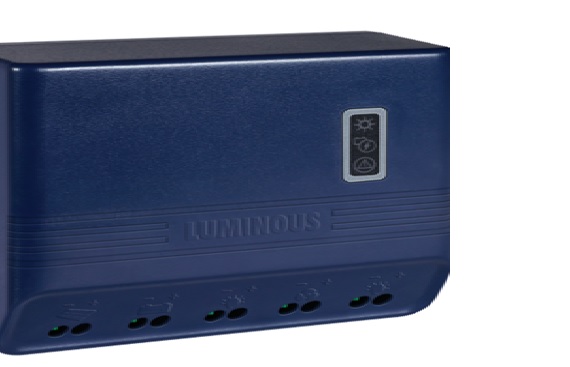Why a Solar Charge Controller is a Must-Have Instalment in Your Home?

As solar power becomes one of the most popular renewable energy sources in India, an increasing number of people are installing solar PV systems in their homes. These systems usually consist of solar panels, an inverter, a battery, cables, connectors, and other electrical components. However, another key element is the solar charge controller, which is typically not considered essential, but that is not quite true.
Instead, a solar charge controller is a must-have instalment if you recently invested (or are planning to) in a home solar PV system. This is because solar charge controllers enhance the solar plant’s performance, efficiency, safety, and service life. However, you should know that you usually don’t require a solar charge controller for small-sized PV panels of up to 5 watts. But if your installation provider recommends you install one, you probably should.
Now, let’s understand how solar charge controllers work, after which we will also look at their different variations available in the Indian market.
How Does a Solar Charge Controller Work?
In simple terms, a solar charge controller is an electronic device that manages or regulates the current travelling from the solar panels to the solar battery. It does this to ensure that the solar battery is not being overcharged during the daytime, as this can result in damage and safety hazards. Additionally, the solar charge controller ensures that the current does not travel back to the solar PV panels at night, as it can lead to excessive drainage. This is also commonly known as reverse current protection.
While these are the two primary functions of solar charge controllers, they also have some added features, such as load control and lighting control, which also promote battery health in the long run. So, all in all, you can say that a solar charge controller is an important component, especially if you solely rely on solar energy to power your home. However, it is also crucial to choose the right type of solar charge controller, which we will discuss next.
The Types of Solar Charge Controllers
At present, there are two main types of solar charge controllers available in the Indian market, which are:
1. Pulse Width Modulation (PWM) Solar Charge Controllers
A Pulse Width Modulation (PWM) solar charge controller has been in use for years. It works through a direct connection between the solar battery and the PV panels. Plus, there is usually a 3-stage charging cycle, which is best suited for DC appliances with lower power ratings. Additionally, PWM solar charge controllers have an efficiency of 65-70% and are even quite affordable.
2. Maximum Power Point Tracking (MPPT) Solar Charge Controllers
Maximum Power Point Tracking (MPPT) solar charge controllers are new in the Indian market. In comparison to the PWM technology, they offer multi-stage charging, which also results in excellent power delivery. Moreover, MPPT charge controllers have a higher efficiency of up to 95%, and they are also slightly expensive.
Although MPPT solar charge controllers are the better option in terms of performance and efficiency, many people are hesitant to purchase them because of the high price. However, since the device is nothing short of a long-term investment, it is best to go for MPPT solar charge controllers. They will not only ensure maximum safety but also improve battery health.
So, that covers everything about solar charge controllers and why they are a must-have instalment. If you’re on the lookout for high-quality and affordable charge controllers, make sure you check out Luminous’ range on their website. Their products are considered the best in the Indian market, and you won’t even burn a hole in your pocket!
